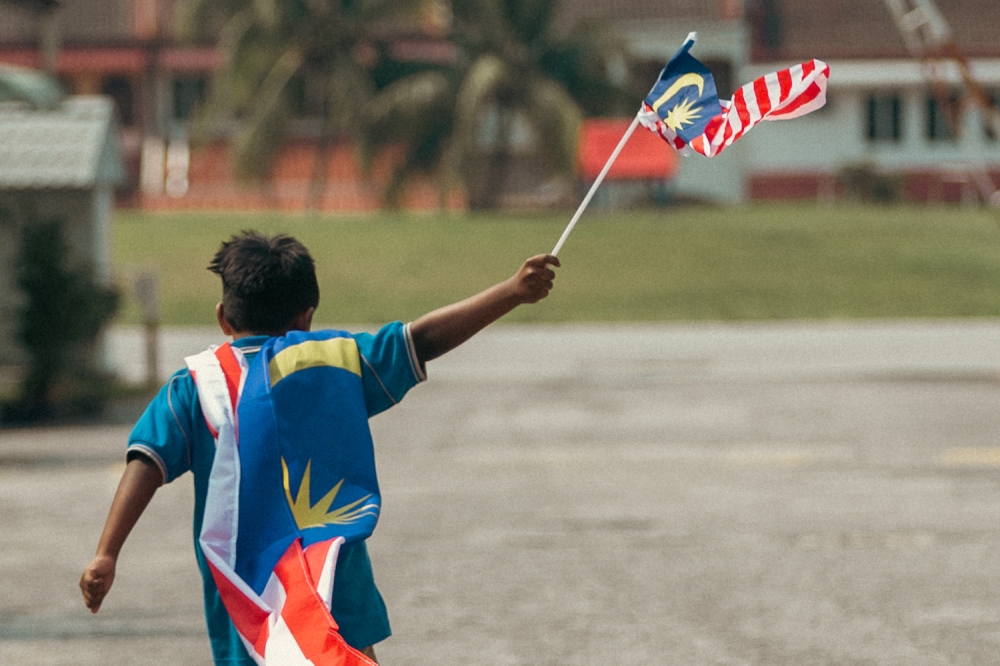AUGUST 30 — Malaysian children without citizenship documents are not security threats nor are they ‘foreigners’ — they are children who have strong attachments to Malaysia.
It is crucial to counter the misleading narratives that categorise children without citizenship as foreigners or to generalise them as “opening the floodgates to allow foreigners access citizenship in Malaysia.”. Such unhelpful and inaccurate narratives imply that granting Malaysian citizenship to children born in Malaysia or children born to a Malaysian mother would lead to an overwhelming influx of foreigners becoming Malaysian citizens. Such narratives not only misrepresent the realities of these children but also exacerbate the anxieties faced by Malaysian families who are grappling with the challenges of statelessness and the existence of unequal nationality laws.
We thank the Home Minister and the Ministry of Home Affairs for their efforts in processing 8,288 out of the 150,000 pending citizenship applications, and their commitment to resolve 10,000 citizenship applications by the end of 2023.
We ask that the ministry publish anonymised details of the 8,288 cases, to foster trust and showcase the fair and equitable nature of the citizenship processing procedure. This would further remove any potential concerns or allegations of preferential treatment based on gender, ethnicity, religion or geographic region.
Furthermore, we eagerly anticipate receiving a strategic plan from the Ministry outlining their approach to effectively resolving the remaining backlog of 140,000 cases. Such a roadmap would provide a clear understanding of the Ministry’s intentions and actions, instilling confidence in the timely and judicious resolution of pending applications.
The persistence of this backlog has been long-standing, leaving many children stateless, in precarious situations or at risk of being separated from their parents. Currently, the processing time for citizenship applications averages around 5 years or more for a response from KDN, and oftentimes the response is that documentation is incomplete or that the application is rejected without any reasons or explanation provided.
It is our hope that reasons for rejection are provided when applications are rejected and improvements in this timeline can be achieved. Applying the overriding principle that all State actors must act in the best interest of a child, this will ensure that children can promptly access essential basic rights such as healthcare and education, fundamental to their well-being and development.
Statelessness is not new to Malaysia: the pre-independence context of stateless minorities, including those who are in Sabah and Sarawak, have long suffered without complete documents and their rightful access to citizenship, as provided in the Federal Constitution. Over the years, there have been challenges related to the interpretation and application of laws and policies, leading to a systemic issue of childhood statelessness. Among these challenges are the introduction of intricate procedural prerequisites and an onerous burden of proof placed upon children, who were born out of wedlock, of Malaysian fathers, abandoned or foundling children, as well as stateless adopted children. Addressing these challenges positively will pave the way for a more inclusive, just and equitable system.

The processing of citizenship documents for these categories of children have been deemed by the government to be within the Home Ministry’s discretion. It is essential to ensure a harmonious application of our Federal Constitution and the need to work towards a system where interpretations of regulations are balanced and transparent, promoting inclusivity in our diverse multicultural society.
Very strict or restrictive interpretations of provisions in order to suit prevailing arbitrary views on moral conduct, and gatekeeping who “deserves” to be Malaysian, has caused severe distress for many Malaysian families and against the best interest of children. Bearing in mind that citizenship provides access to all basic fundamental rights and liberties, children/adopted children of at least one Malaysian parent must be granted access to Malaysian citizenship on an equal basis regardless of the gender of the parent, place of birth, religion, race or descent.
Addressing these challenges collectively is vital to instil confidence that the power vested in public officials is being exercised judiciously.
We wish to express our continued concerns regarding specific proposed regressive citizenship amendments.
It is insufficient to clear a backlog only to create new and further categories and persons without citizenship through ill-conceived and myopic amendments. We believe that a careful consideration of these amendments, with thorough stakeholder engagement, is essential to prevent the potential compounding of statelessness and the emergence of further incidence of intergenerational statelessness. For foundlings or abandoned infants, the opportunity for adoption merits significant thoughtful deliberation. By addressing the above considerations, we can contribute to a future where these children, as they grow into adulthood, have access to essential financial resources, legal protections, and the ability to partake in various life experiences, including marriage. All in, to create wholesome individuals able to contribute to nation building and development of the nation.
We maintain our trust in the Government’s commitment to ongoing engagement with all stakeholders, valuing their concerns, and diligently gathering comprehensive data and statistics on the issue of statelessness in Malaysia. It is our sincere hope that the Government will proceed thoughtfully and considerately, taking due time to deliberate on the proposed amendments related to statelessness, recognising the gravity of their potential impact and far-reaching consequences.
Eleven endorsing organisations of the Malaysian Citizenship Rights Alliance:
1. DHRRA Malaysia
2. Yayasan Chow Kit (YCK)
3. Bait Al Amanah
4. Stateless Malaysians Citizenship Movement (SMCM)
5. ANAK
6. Malaysia Hindu Dharma Mamandram (MHDM)
7. Persatuan Untuk Anak Kita (PuakPayong)
8. Lawyer Kamek
9. Family Frontiers
10. Malaysian Collaborative Practice Group (MCPG)
11. Voice of Children
* This is the personal opinion of the writer or publication and does not necessarily represent the views of Malay Mail.





















